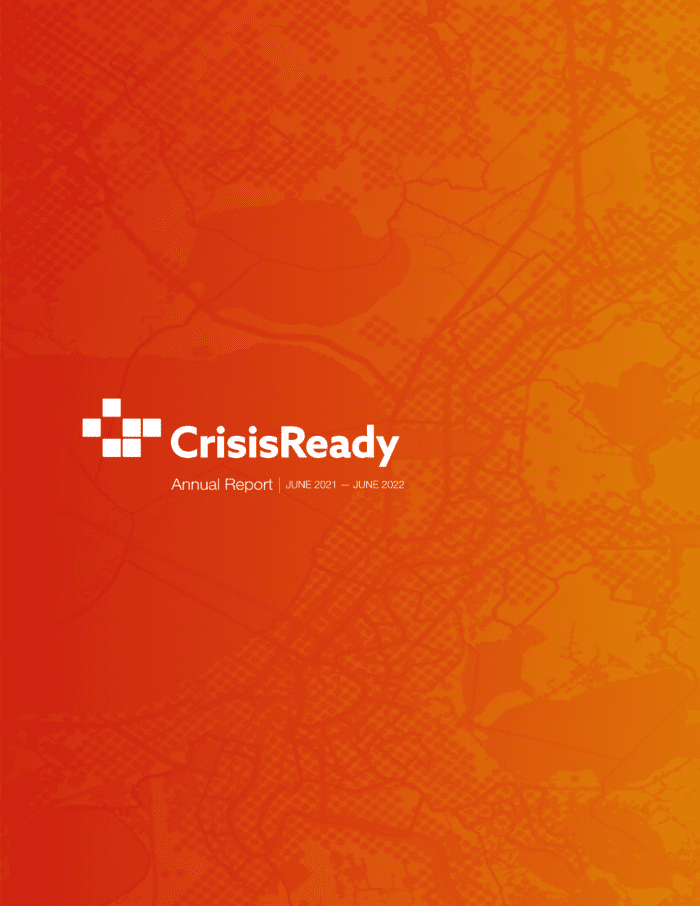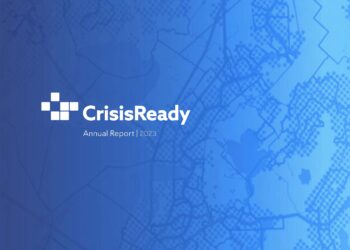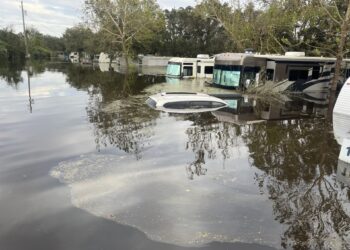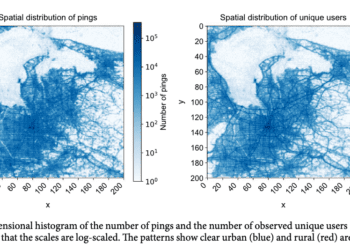Over the past year, CrisisReady has launched several new research initiatives, projects, workshops, and digital tools to advance the field of emergency response and management. The report provides an overview of the past year of research and programming at CrisisReady, including:
- Reports on natural disasters around the world
- Trend analyses of refugee displacement dynamics during the war in Ukrainian
- The development of new digital tools to optimize wildfire response in California
- A community-led initiative to build a trustworthy, accessible differential privacy tools for data custodians
- Events and webinars to discuss key challenges in various areas of emergency response and preparedness, and the potential for novel data and technology to solve them
- Initiating a series of workshops with public health and government officials around the world to brainstorm ways novel data sources can bridge regional gaps in emergency preparedness and response
- Researching the impacts of wildfires in California on medical resources and local healthcare systems
- And more…
Note from the Directors
We are very pleased to share our first annual report with you. The Report highlights our work over the last 12 months, between June 2021 and June 2022.
CrisisReady evolved from the COVID-19 Mobility Data Network, a collaboration of scientists, policy makers and technology companies that jointly volunteered to advance data-driven decision making during the pandemic. CrisisReady has expanded this work to a range of crises facing our world today, from wildfires in California, hurricanes in the southern United States, to the refugee crisis resulting from the war in Ukraine. Our researchers include a full-time team based at Harvard and Direct Relief, and scientists in Latin America and Asia, supported by our seed grants.
Research and and operations are organized around our Data-Methods-Translational Readiness Framework. We have had a very productive first year, making significant strides in procuring more data, growing our regional hubs, advancing methods to address uncertainty, privacy, bias, interoperability, and usability of novel data streams, and partnering with policy makers around the world to put our analysis to use. The Sections on Situation Reports, Wildfires and Ukraine in this report summarize our translational work.
Our report “The Use of Human Mobility Data in Public Health Emergencies”, released in April 2022, was the culmination of a year-long consultative process across academia, industry, policy-makers and humanitarian aid agencies, to urgently address the usability of human mobility data in a safe, secure, and responsible manner. We continue to lead the international dialogue on the use of mobile phone data for public health emergencies, chairing a National Academies of Sciences working group on this topic. In collaboration with the World Economic Forum, we are planning a series of domestic and international events in the Fall of 2022.
2022 also saw expansion of the international engagement and training for emergency response to Mexico, Colombia, and Ukraine, where we worked with local scientists, NGOs, and policy makers in regional workshops to apply our methods and analysis to local epidemiological and humanitarian needs. These workshops represent the beginning of a globally-distributed network of sites that can bring the CrisisReady framework to their own contexts.
We thank our team, our collaborators, and our donors who have so generously supported us. Our work is supported by grants from the Harvard Data Science Initiative, Schmidt Futures, Meta and Google.org
Sincerely,
Caroline Buckee, Satchit Balsari, Andrew Schroeder
August 2022




